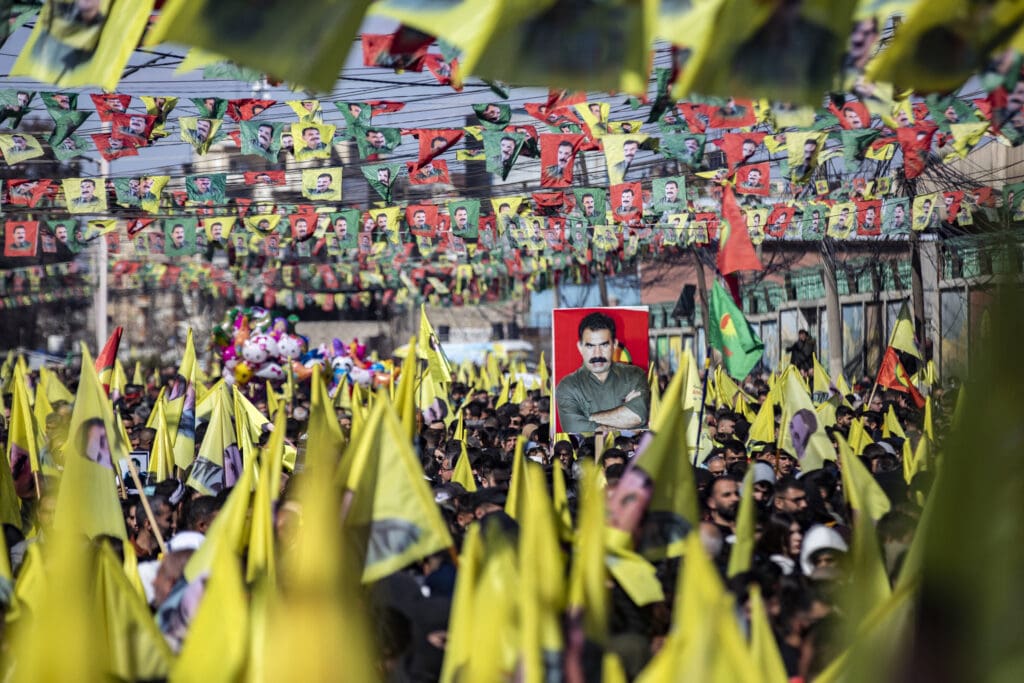On May 12, 2025, the Kurdistan Workers’ Party, or PKK, officially declared its dissolution after nearly five decades of armed insurgency against the Turkish state. The announcement was made in parallel congresses held in the Kandil Mountains and the Zap Valley, the two iconic strongholds of the movement in northern Iraq. Two hundred and thirty-two senior delegates from across its civilian and military structures were in attendance.
This is no symbolic gesture. The PKK has decided to formally cease all armed operations and dismantle its organizational structure. At the same time, the declaration was deliberately crafted to present the move not as a concession or surrender, but as a strategic reorganization and political evolution.
The end of the PKK insurgency is the most consequential domestic event for Türkiye in decades, with broader implications inside and outside its borders. Yet its suddenness belies the importance of properly managing both the transition and the development of a more inclusive and visionary Turkish politics. Will the country’s political leadership rise to the challenge?
Cautious Messaging
The historic disbandment of the PKK was not entirely unexpected, as it followed two important developments. In October 2024, Devlet Bahceli—the ultranationalist leader of the Nationalist Movement Party (MHP) and ally of President Recep Tayyip Erdogan—departed from his typical hardline position to deliver an important entreaty to the PKK, calling on it to dissolve itself with the possibility that its imprisoned leadership could be released. Then, in February 2025, Abdullah Ocalan, the PKK’s founding leader, called on the group to lay down its arms from his prison cell on Imrali Island.
Given that the PKK decision represents an armed group exiting conflict without a signed peace agreement, how each side now sells this development to their constituencies is especially important. There is a mutual need to disarm critics across the board by avoiding cornering the other or falling into a zero-sum framing of winners and losers. If that fails, it could easily derail the fragile choreography of the post-conflict phase.
In its declaration, the PKK claimed to have “completed its historical mission” of forcing Türkiye to confront the Kurdish issue—not as a security threat, but as a political and constitutional reality. The group reaffirmed its commitment to “equal citizenship,” local autonomy and democratic pluralism, insisting that sustainable peace requires legal guarantees, political inclusion and the unimpeded participation of Kurdish actors, including Ocalan. The emphasis on “grassroots organization through women and youth,” and the call for a new “social contract,” signals an ideological repositioning from guerrilla warfare to civil resistance and political contestation. It also repositions the group as an actor with a renewed political—and increasingly social—mission, one that will clearly require legal assurances and credible mechanisms for return and reintegration.
For Ankara, it is a national triumph in the sense that it signals the ultimate fulfillment of the government’s “Terörsüz Türkiye,” or Terror-Free Türkiye, doctrine. Türkiye, for now, lacks a reconciliation vocabulary and is instead emphasizing sequencing, reputational stakes and message discipline, while simultaneously managing public perceptions of the peace process’s legitimacy.
The government response to the PKK’s disbandment was immediate and multilayered. Bahceli, whose nationalist credentials make him a gatekeeper of the nationalist and conservative consensus, issued the most detailed reaction. For him, the disbandment is not an opening but a closure: a blood-stained chapter that must be sealed tightly. His statement outlined a comprehensive roadmap for demobilization, including forensic verification of disarmament (the use of technical means to verify that weapons have been irreversibly destroyed or surrendered), legal differentiation of combatants based on criminal records, and strict prevention of personnel transfer to affiliated groups in Syria, such as the Democratic Union Party (PYD) and the People’s Defense Units (YPG).
But Bahceli also emphasized that beyond security-focused steps, the process must include political and legal reforms to reinforce the thousand-year-old fraternity between Turks and Kurds and the collective will to coexist. The tone was methodical—almost surgical—and focused on the next steps that the government must take. Though ideologically a hardline nationalist, Bahceli emerged in the process as a guarantor of the state’s red lines, earning trust across party lines, including among Kurdish political and armed actors.
Erdogan’s message, on the other hand, was strategically terse. He praised the development as a blow to “imperialist ambitions” in the region and called for the disbandment to extend across the PKK’s entire transnational network, from Iraq and Syria to Europe. Notably, Erdogan did not invoke “peace” or “reform,” but reiterated that Türkiye’s National Intelligence Organization (MIT) would maintain vigilant oversight to prevent any “accidental reversals.” The framing was clear: This was not a negotiated end to war. Rather, it would be a controlled transition from armed conflict toward integration into the state-led order, without challenging Türkiye’s foundational narratives.
What Will Happen Next?
Reports indicate that weapons will be surrendered under international oversight in locations inside Iraq, Syria and Türkiye in coordination with the relevant governments and Turkish intelligence. Symbolically, this is more than a logistical step, as it signals irreversibility and carries reputational weight for both sides. To support this transition, a structured pathway is being explored: Senior cadres may be relocated to a third country—likely Norway or Sweden—while lower-ranking fighters without criminal records may qualify for monitored return.
Still, the risks are significant. One of the most fragile aspects may be Türkiye’s capacity to socially absorb returning ex-combatants. Years of securitized policies and nationalist discourse have left deep scars, especially among communities outside the Kurdish-majority regions. Without comprehensive reintegration frameworks—legal, socio-economic, political and psychological—the process risks unraveling.
After disarmament is completed, the process is expected to unfold gradually, with increasing pressure on the state to take reciprocal action. A wave of anticipated actions is already building in policy and media circles. Key expectations include constitutional amendments, reforms in Kurdish-language education, and the strengthening of local administrations. The controversial practice of appointing state trustees in place of elected Kurdish mayors is likely to end, with previously dismissed Kurdish mayors reinstated. The release of Kurdish political figures, including former People’s Democratic Party (HDP) co-chair Selahattin Demirtas, is also a fair expectation.
On the constitutional front, a senior presidential advisor has framed this juncture as a foundational reset, envisioning a tightly managed, majoritarian model of “national and patriotic democracy” led by the executive. Such a framework could introduce democratic gestures, such as constitutional recognition of ethnic and religious diversity, while simultaneously enabling Erdogan to pursue a third term as president. While the CHP supports the peace process and views the PKK’s disarmament as a positive step, it is unlikely to endorse any constitutional engineering that secures Erdogan’s political longevity.
In sum, the PKK’s disbandment marks Türkiye’s most consequential domestic shift in decades, with far-reaching regional and international implications. The key question is whether this moment triggers institutional transformation or simply stabilizes the status quo. Stability seems more likely, but the future of democracy hinges on how the transition is managed.
This is not the end of history, but the beginning of something layered, unfinished and profoundly significant. It demands a response rooted in both caution and courage—and a political imagination clear-eyed enough to recognize what has, in fact, ended. What is over is not only the era of armed conflict, but also the broader politics of denial, securitization and stalemate. The challenge now is for political actors to confront this moment as it is—without illusion, and without clinging to narratives that no longer serve the Turkish Republic and its changing society.


